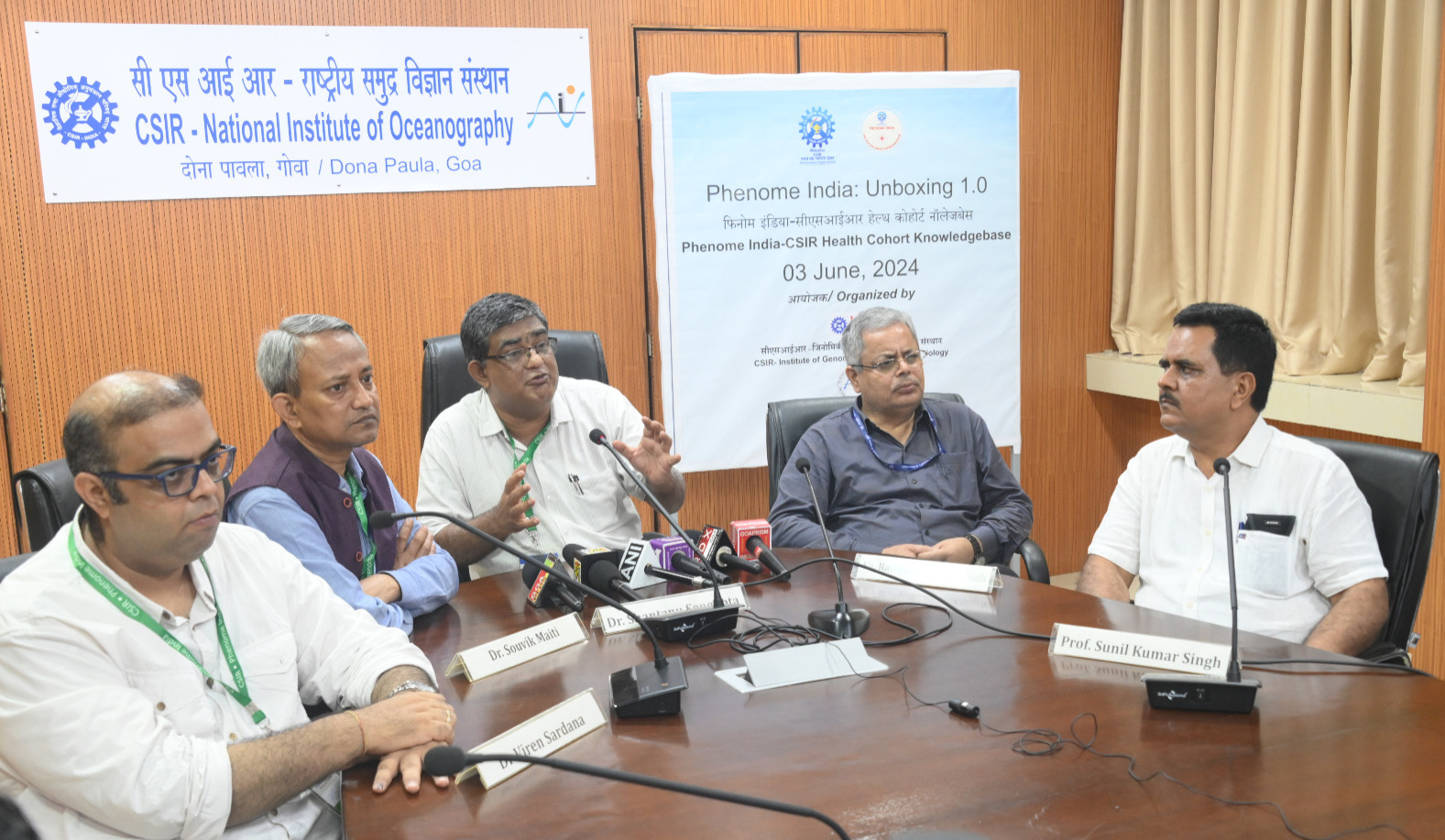The Council of Scientific and Industrial Research (CSIR) has concluded the first phase of its pioneering health monitoring project, ‘Phenome India-CSIR Health Cohort Knowledgebase’ (PI-CHeCK). A special event, ‘Phenome India Unboxing 1.0’, was organized at the National Institute of Oceanography (NIO), Goa on 3rd June to mark this achievement.
Dignitaries Present
- Dr. Souvik Maiti, Director, CSIR-Institute of Genomics and Integrative Biology (IGIB)
- Dr. Sunil Kumar Singh, Director, CSIR-National Institute of Oceanography (NIO)
- Dr. Shantanu Sengupta, Senior Principal Scientist, CSIR-IGIB
- Dr. Rajendra Prasad Singh, Senior Principal Scientist, CSIR
- Dr. Viren Sardana, Senior Scientist, Centre of Excellence for Intelligent Sensors and Systems
Purpose of the Project
Dr. Shantanu Sengupta highlighted the significance of the project in understanding the prevalence of cardio-metabolic diseases in India. He emphasized the need for a personalized approach to healthcare due to diverse risk factors present in the Indian population.
Study Overview
- The PI-CHeCK project aims to develop an advanced prediction model for cardio-metabolic diseases, focusing on diabetes, liver diseases, and cardiac diseases.
- Nearly 10,000 participants from 17 states and 24 cities have been enrolled, providing comprehensive health data.
- Data collected includes clinical questionnaires, lifestyle and dietary habits, anthropometric measurements, imaging/scanning data, and biochemical and molecular data.
Importance of India-Specific Research
- Current risk prediction algorithms are based on epidemiological data from Caucasian populations, which may not accurately represent the Indian population due to ethnic diversity and varied lifestyle patterns.
- The project aims to develop India-specific risk prediction algorithms to enhance accuracy in disease management and prevention.
CSIR’s Vision
The Phenome India project reflects CSIR’s commitment to advancing precision medicine through Predictive, Personalized, Participatory, and Preventive healthcare. By creating a comprehensive phenome database tailored to India’s diverse population, the project seeks to inspire similar initiatives nationwide.
Multiple Choice Questions (MCQs) with Answers:
- What was the purpose of the ‘Phenome India Unboxing 1.0’ event?
- A) To announce the launch of the PI-CHeCK project
- B) To mark the successful conclusion of the first phase of the PI-CHeCK project
- C) To introduce new healthcare technologies
- D) To discuss the challenges in Indian healthcare
- How many participants were enrolled in the PI-CHeCK project?
- A) Approximately 1000
- B) Nearly 10,000
- C) Over 50,000
- D) Exact number not mentioned
- What data was collected from the participants in the PI-CHeCK project?
- A) Only clinical questionnaires
- B) Only lifestyle and dietary habits
- C) Comprehensive health data including clinical questionnaires, lifestyle habits, imaging data, and biochemical data
- D) None of the above
- Why is it important to develop India-specific risk prediction algorithms?
- A) Indian population has identical risk factors to Caucasian populations
- B) Ethnic diversity and lifestyle patterns in India may not be accurately represented by existing algorithms
- C) Indian population is immune to cardio-metabolic diseases
- D) India does not face significant healthcare challenges
